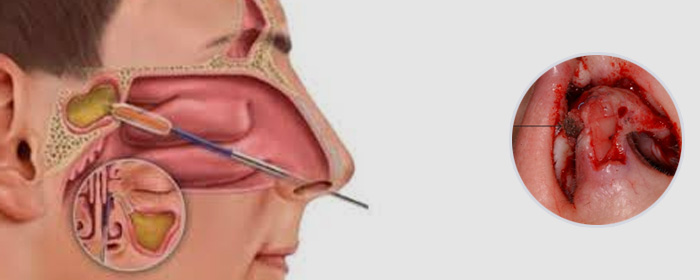


Functional endoscopic sinus surgery (FESS) is minimally invasive surgery for serious sinus conditions. Healthcare providers use nasal endoscopes — thin tubes with lights and lenses — to ease your sinus symptoms without making incisions in or around your nose.
Functional endoscopic sinus surgery is also called endoscopic sinus surgery. Some healthcare providers use the term “functional” because the surgery is done to restore how your sinuses work, or function.
Your healthcare provider may recommend FESS if you have chronic sinus inflammation or a chronic sinus infection that doesn’t improve with medical treatments, such as antibiotics and medications to manage allergies.
You develop sinusitis when the tissue that lines your sinuses begins to swell, trapping mucus that typically flows through your sinuses and out through your nose. The trapped fluid can grow bacteria that can cause infections. Doctor may also recommend surgery if you have nasal polyps.
Your Surgeon will let you know what to do before your surgery. Every person’s situation is different, but most healthcare providers recommend the following:
If you smoke, stop smoking at least three weeks before your surgery. Smoking can make your sinus symptoms worse. Ask your healthcare provider for advice or resources to help with this
Don’t take aspirin for at least 10 days before your surgery. Even small amounts of aspirin can increase how much you bleed during and after your surgery
If your surgery involves general anesthesia, don’t eat or drink anything after midnight the day of your surgery
Your Surgeon will administer general anesthesia just before your surgery begins.
FESS is the standard procedure to treat serious sinus conditions. Healthcare providers continue to refine their approach. Here’s an overview of the process:
Your Doctor puts decongestant medication in your nose
They do a follow-up nasal endoscopy
They inject a numbing solution into your nose
Using the endoscope, they gently enter your nose. They insert surgical tools alongside the endoscope to use the endoscope to remove bone, diseased tissue or polyps that may be blocking your sinuses
They may also use a small rotating burr to scrape out tissue
Finally, your Surgeon may pack your nose with material to absorb any blood or discharge.
Everyone’s situation is different, but most functional endoscopic surgeries last about two hours.
It can take a few months before you feel as if you’re back to normal. Most people go back to school or work in a week or so and resume their normal routine within two weeks.